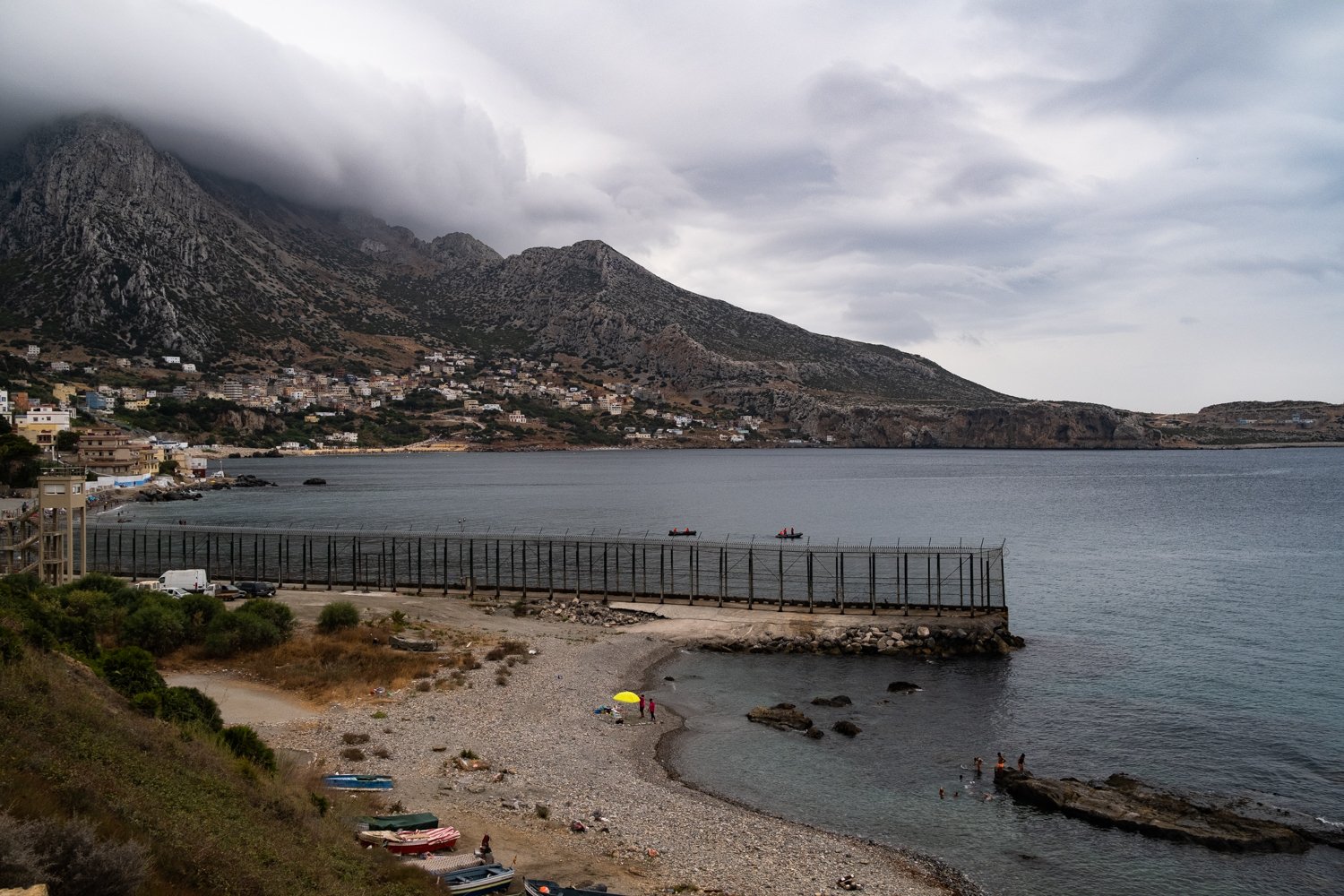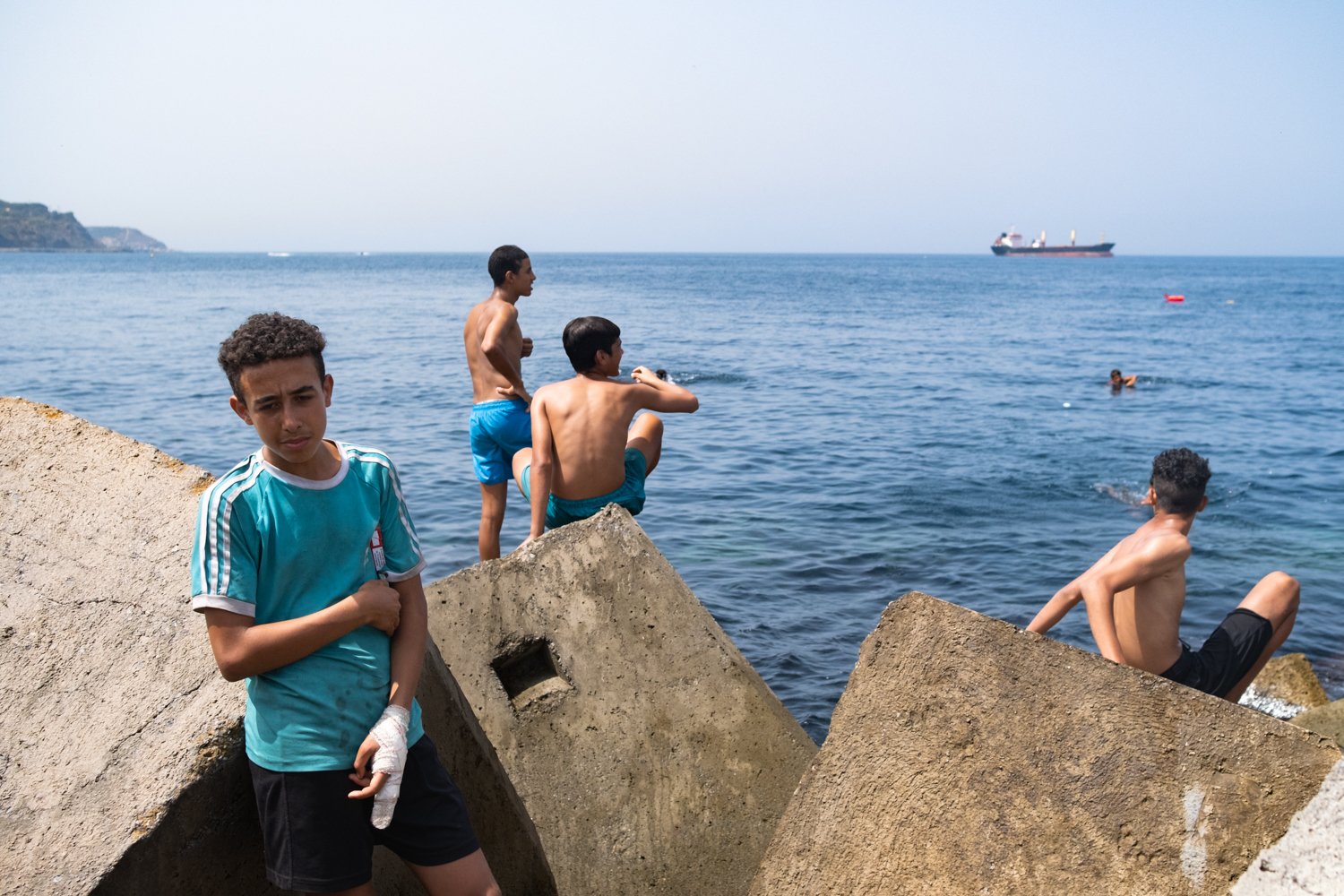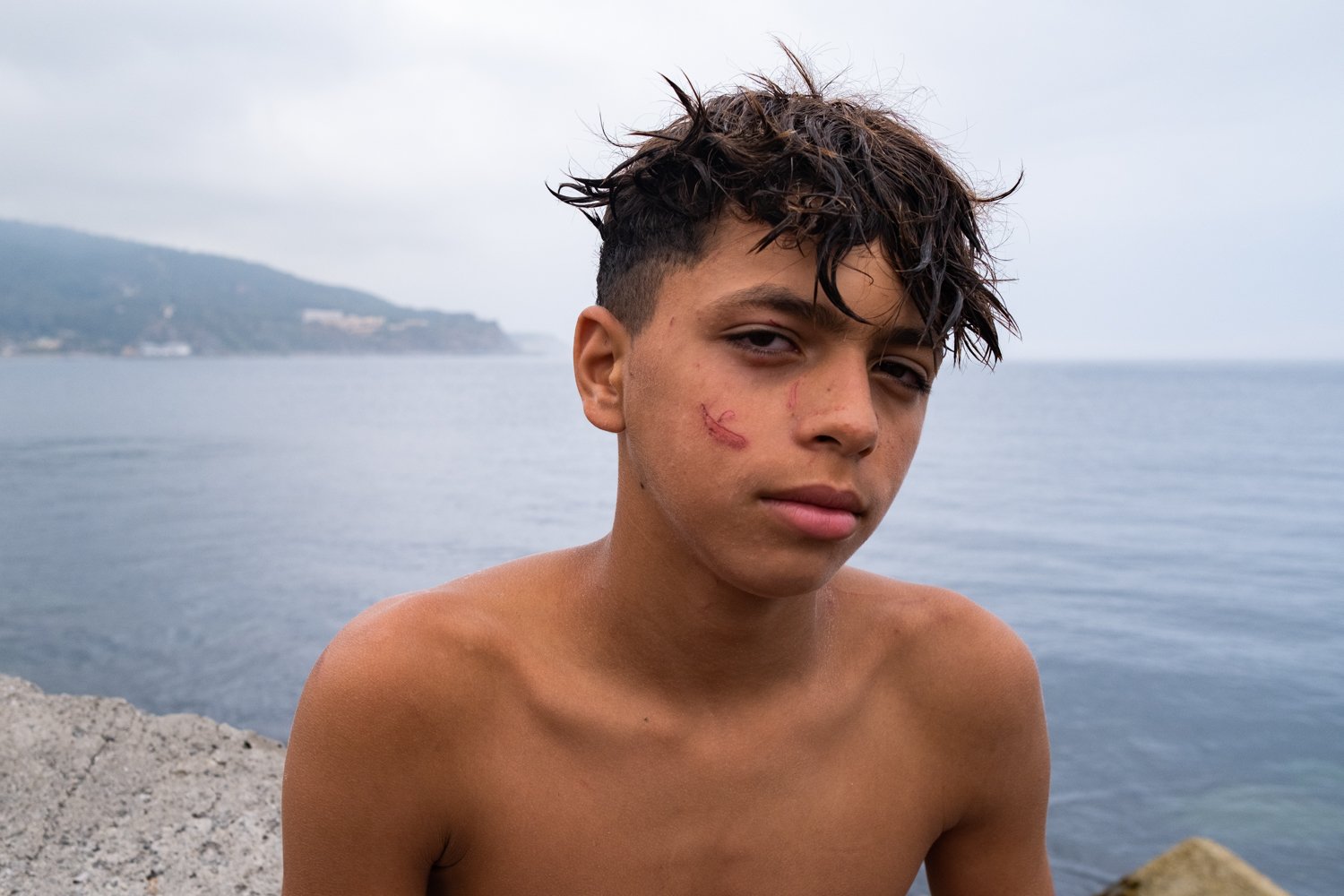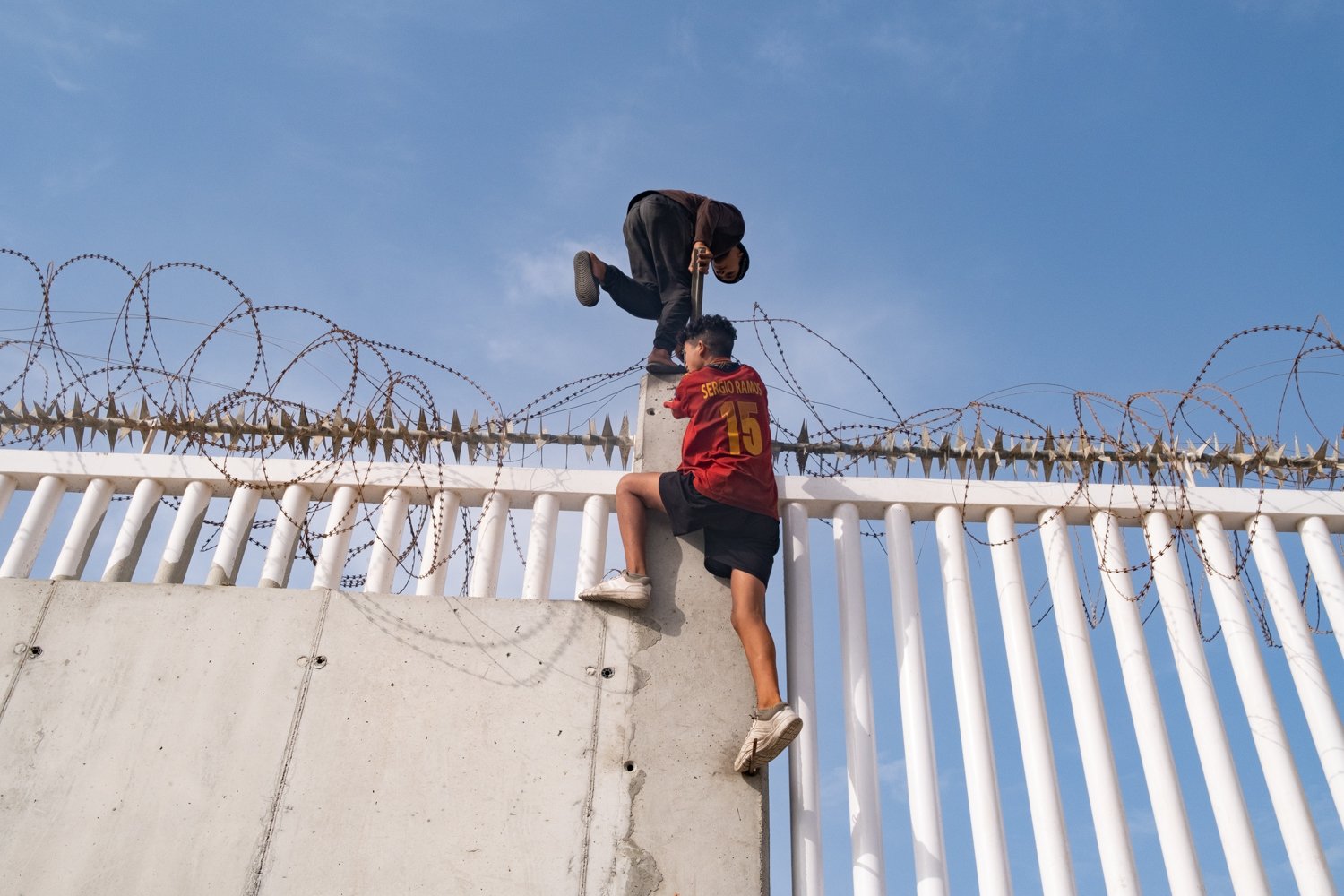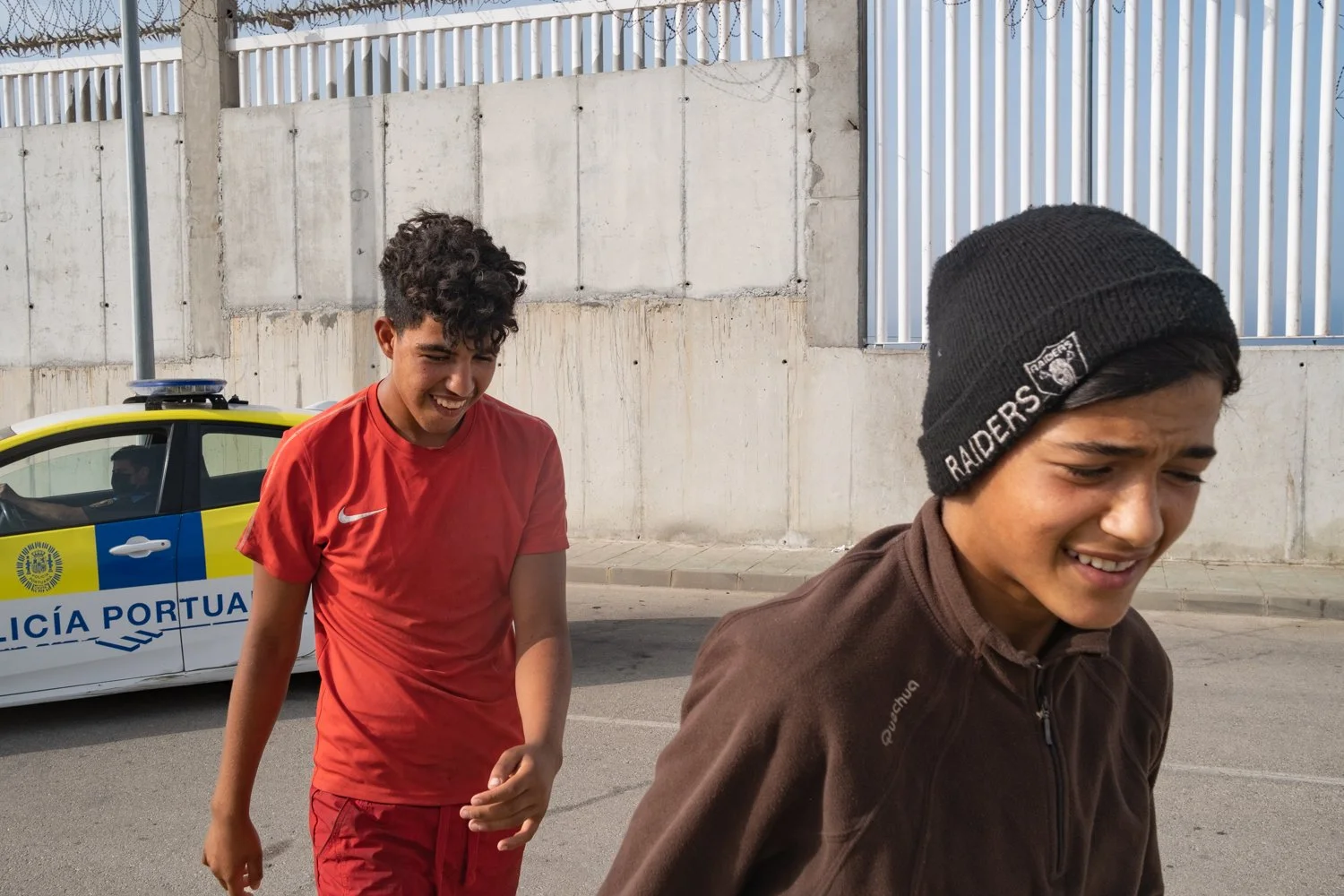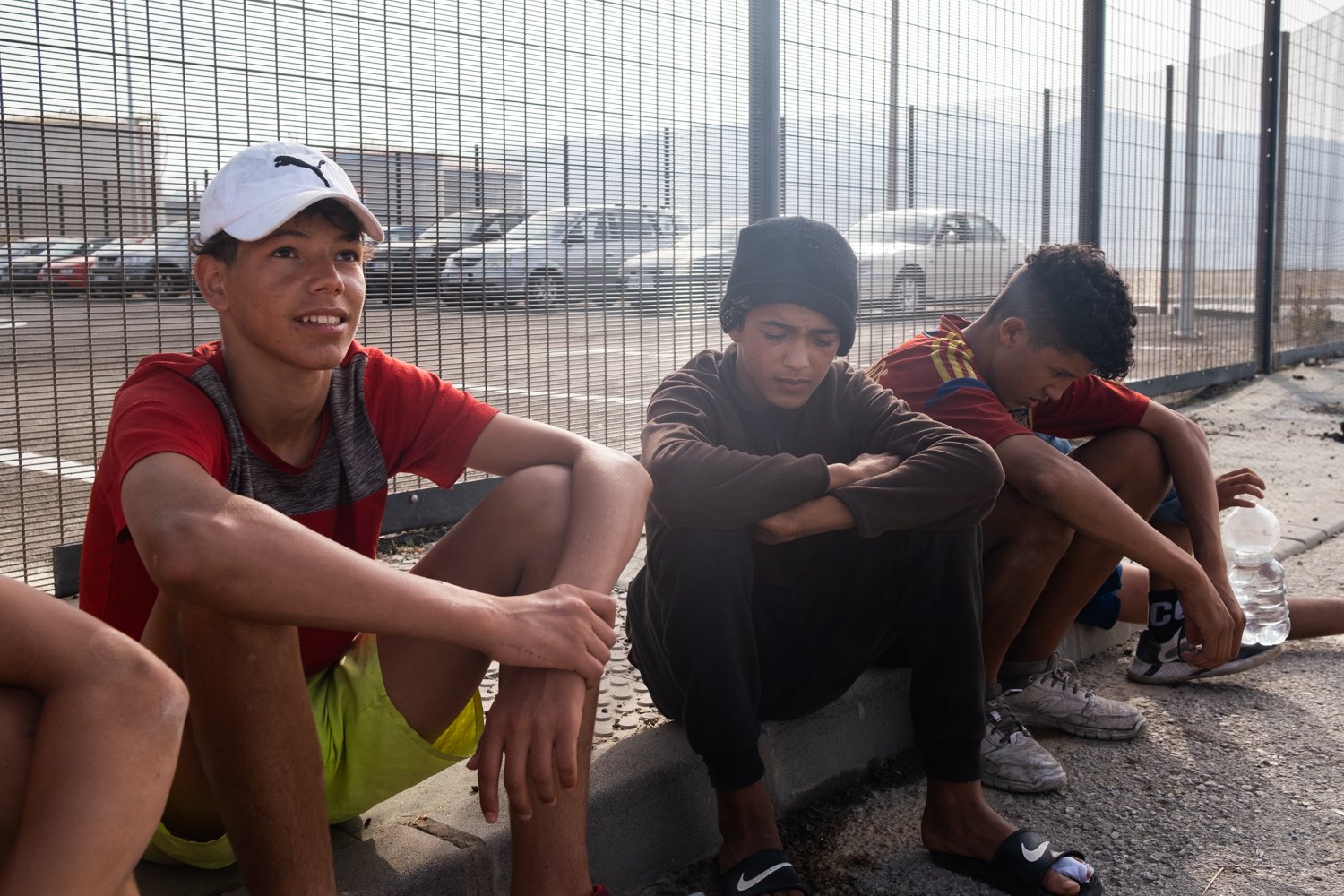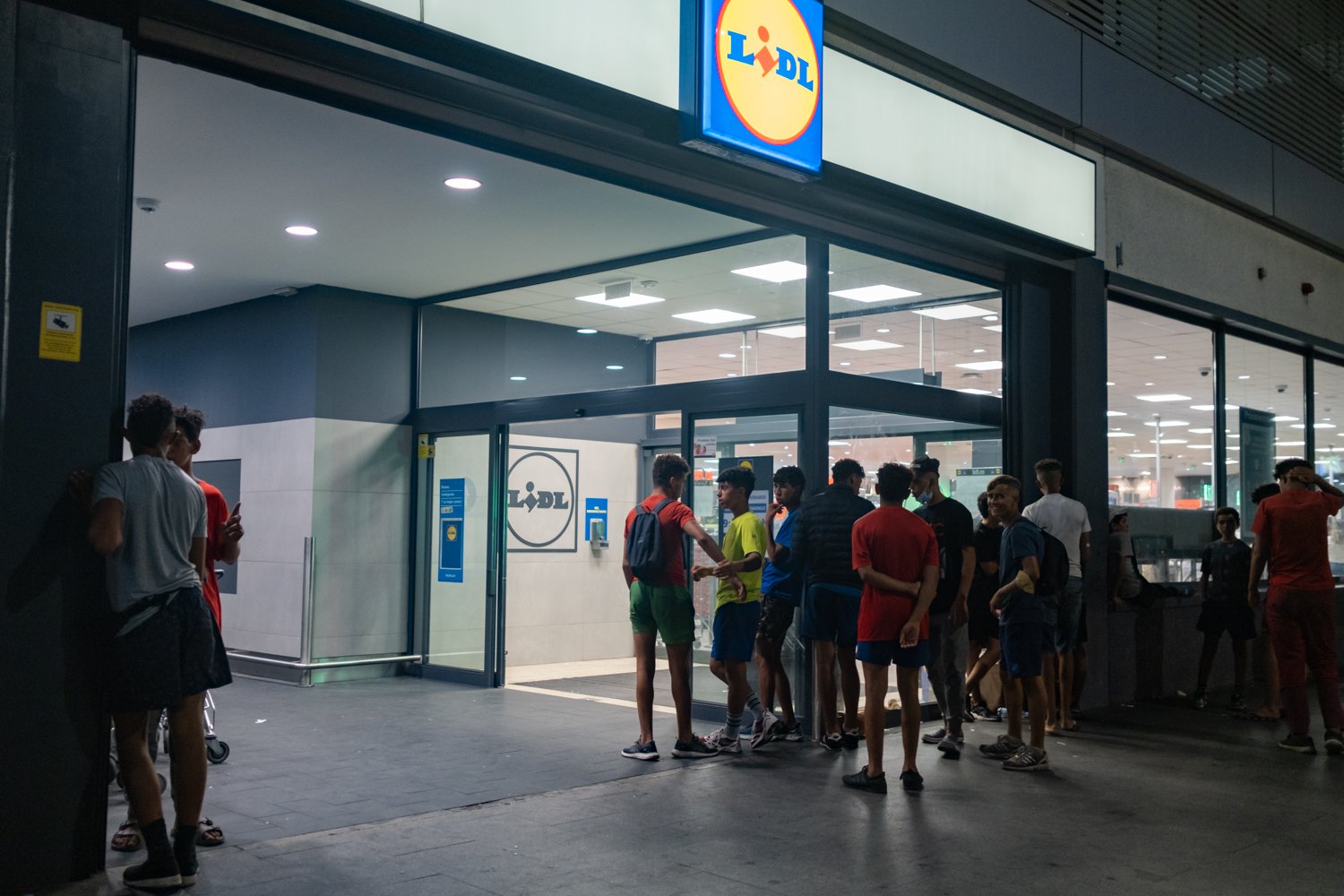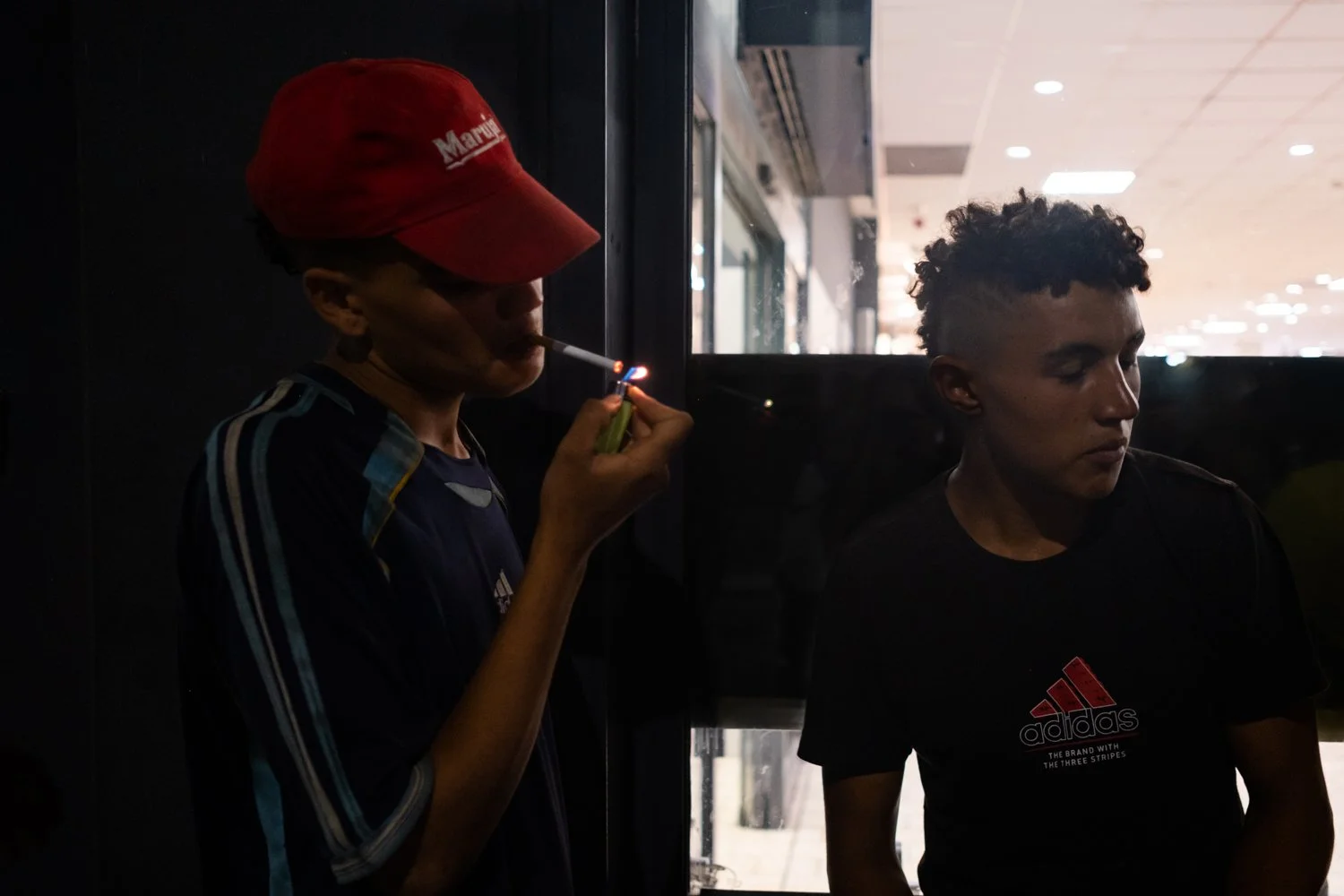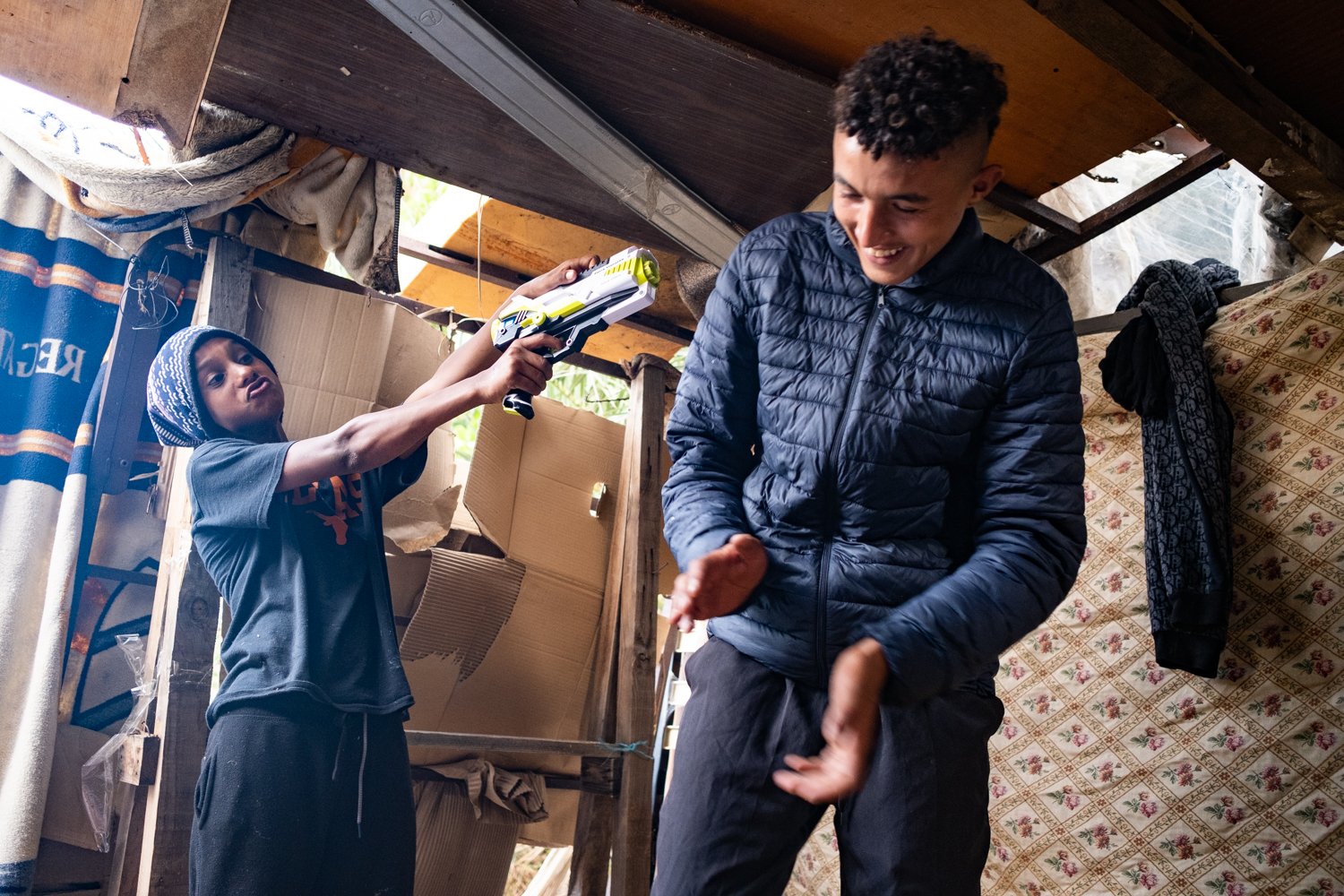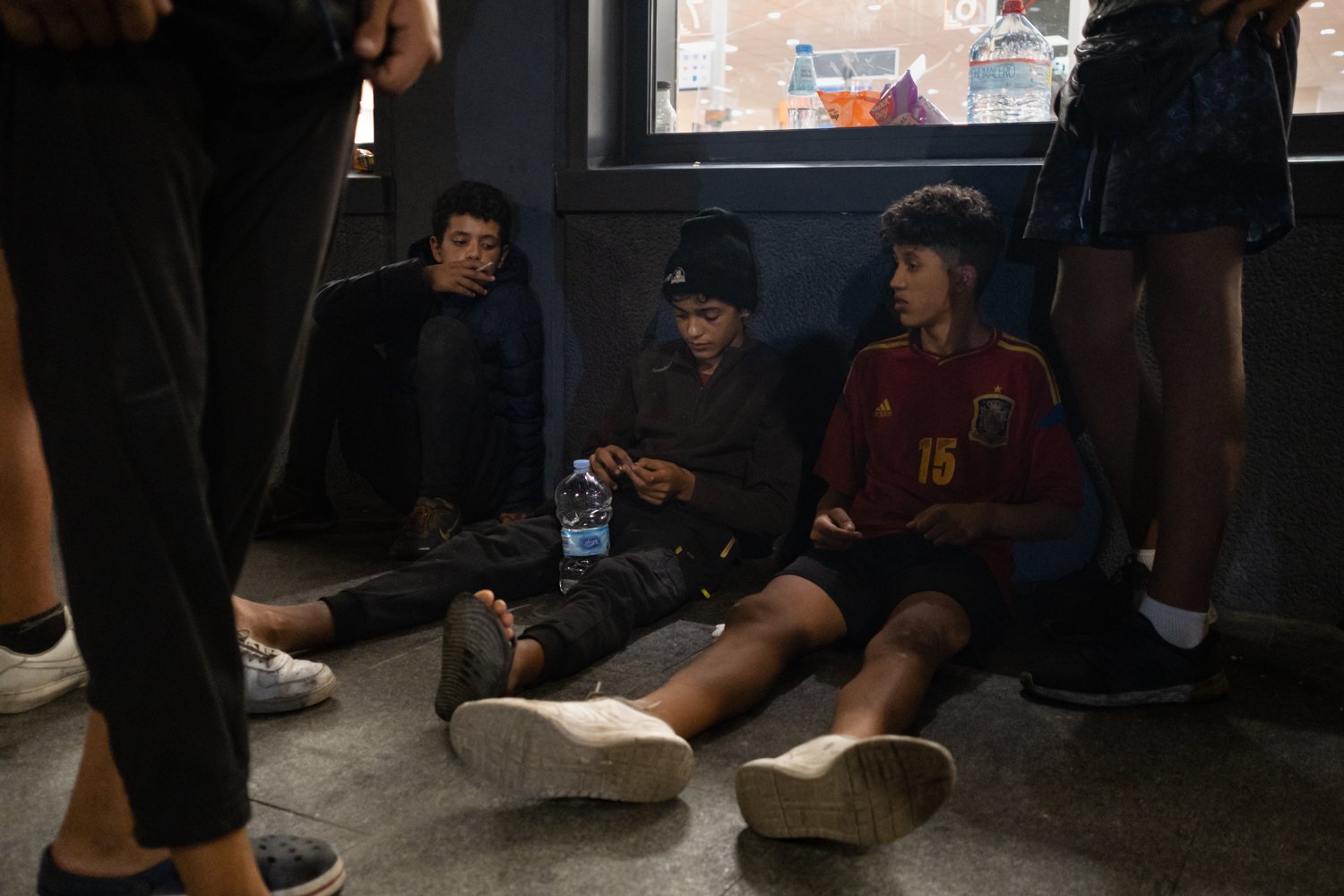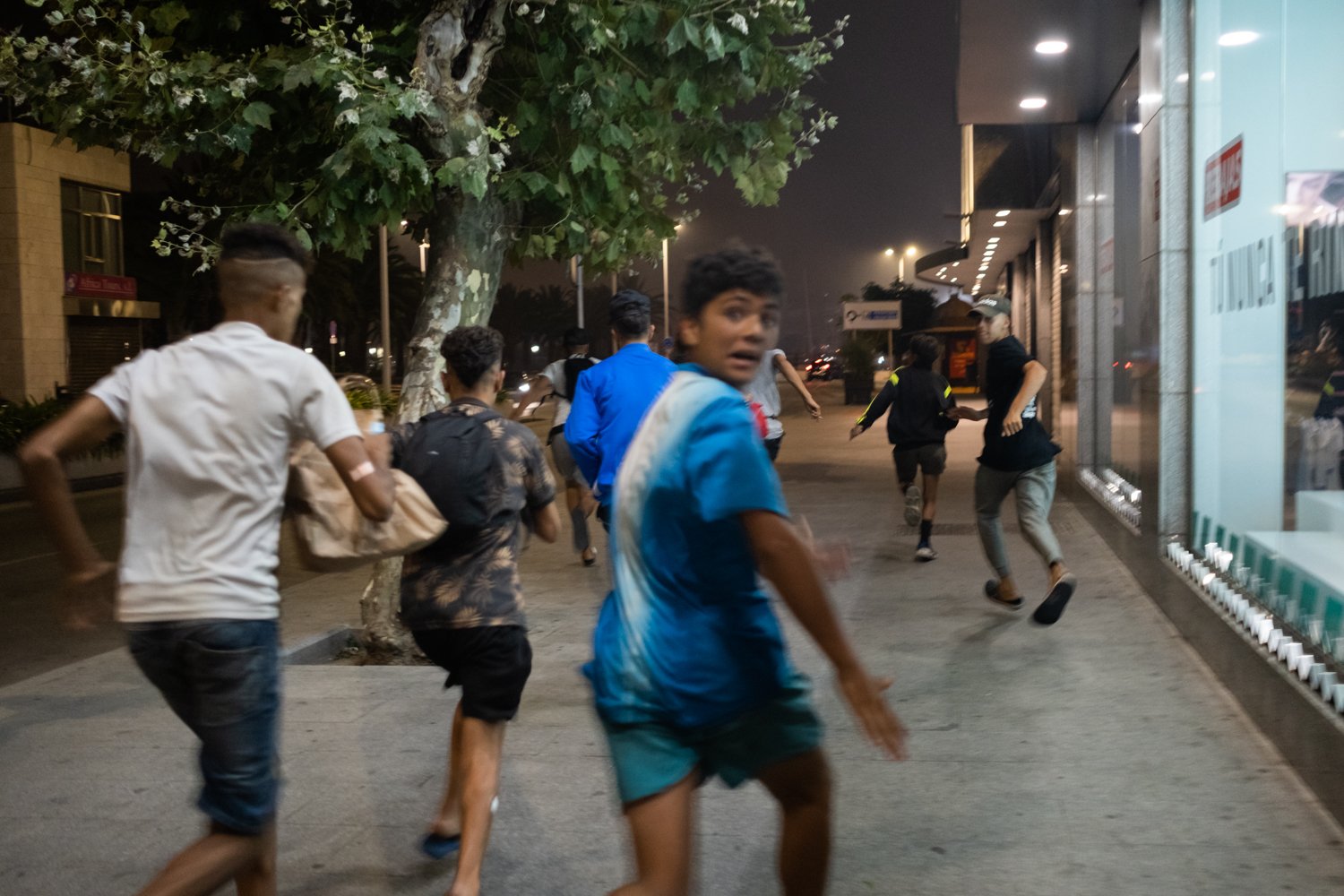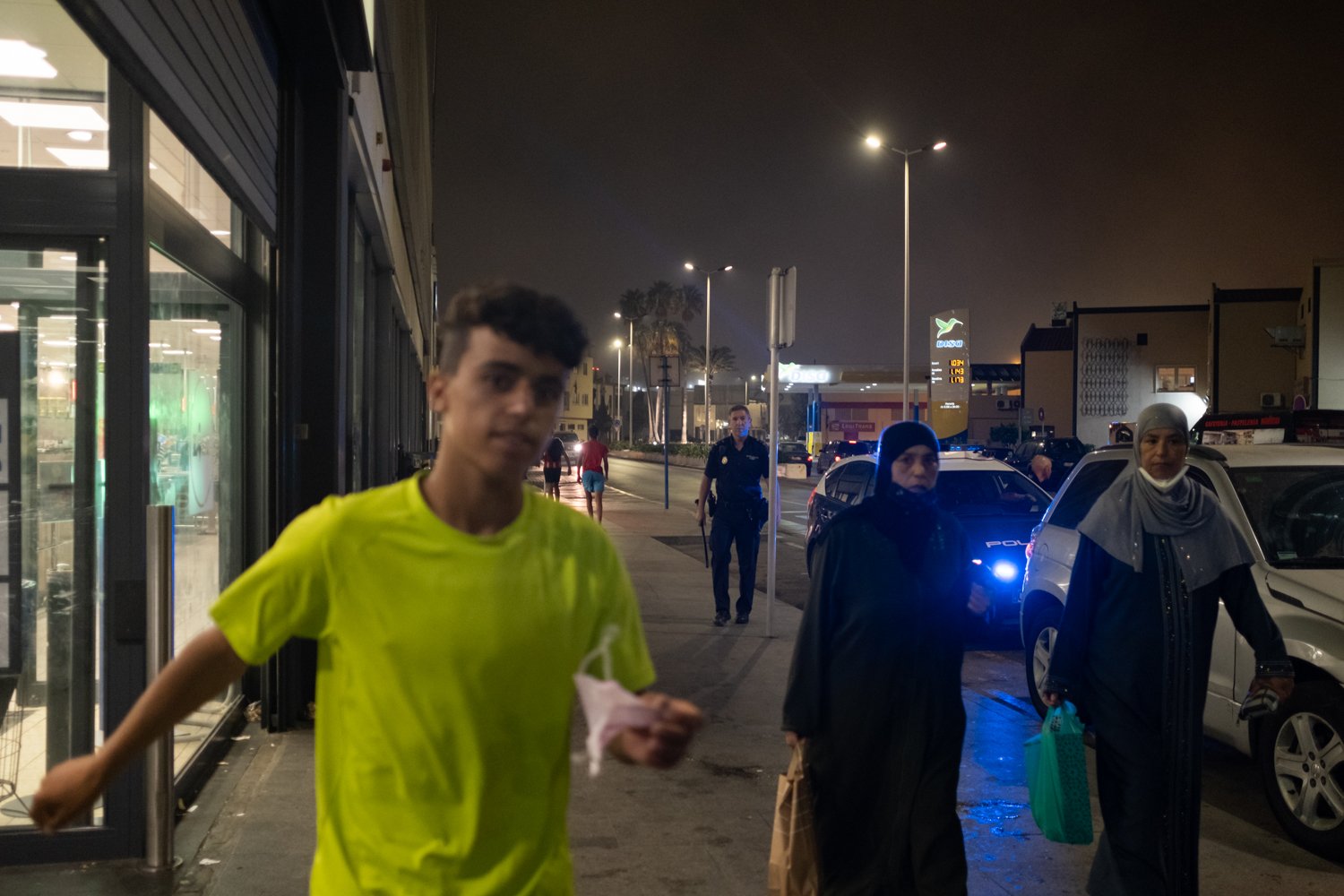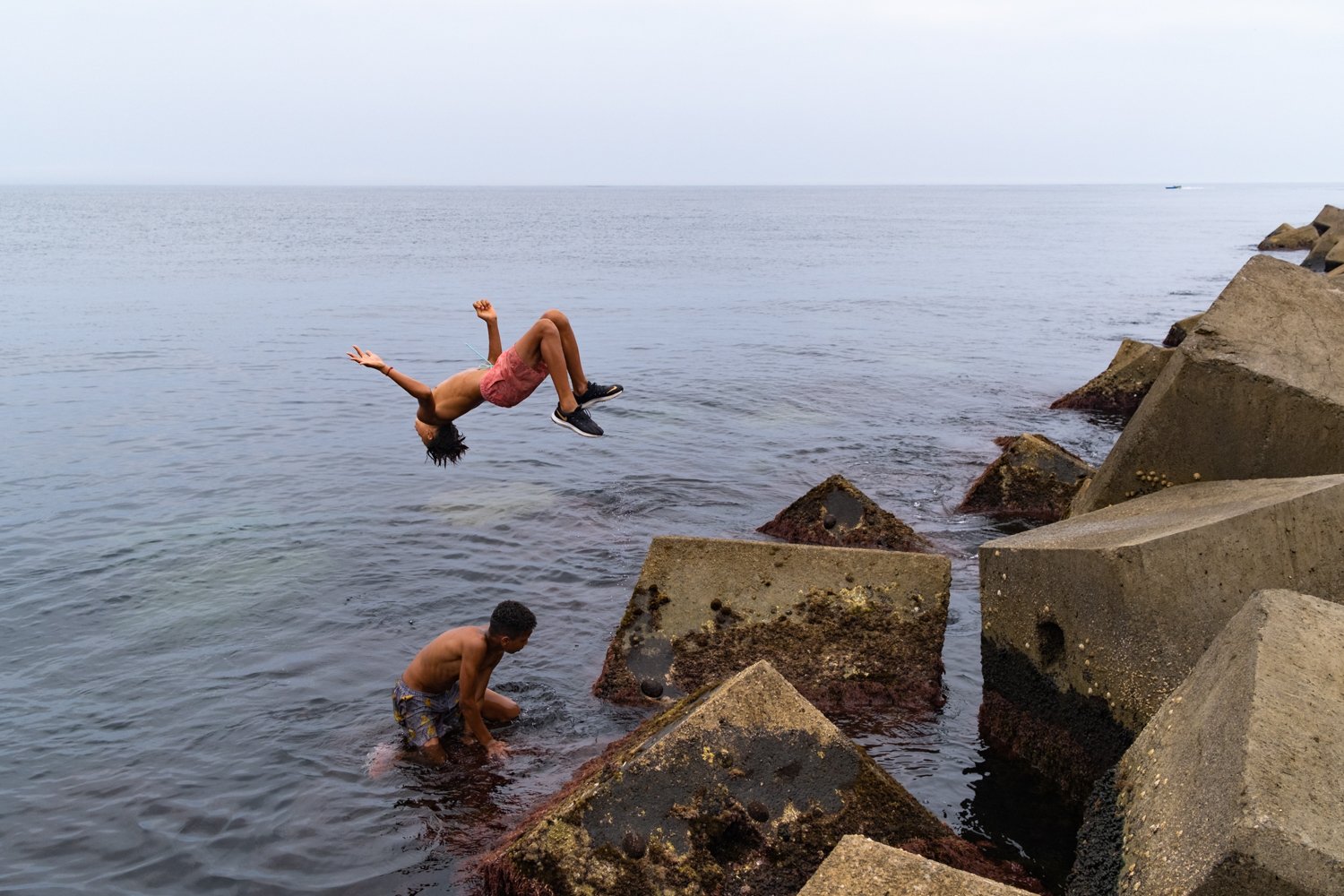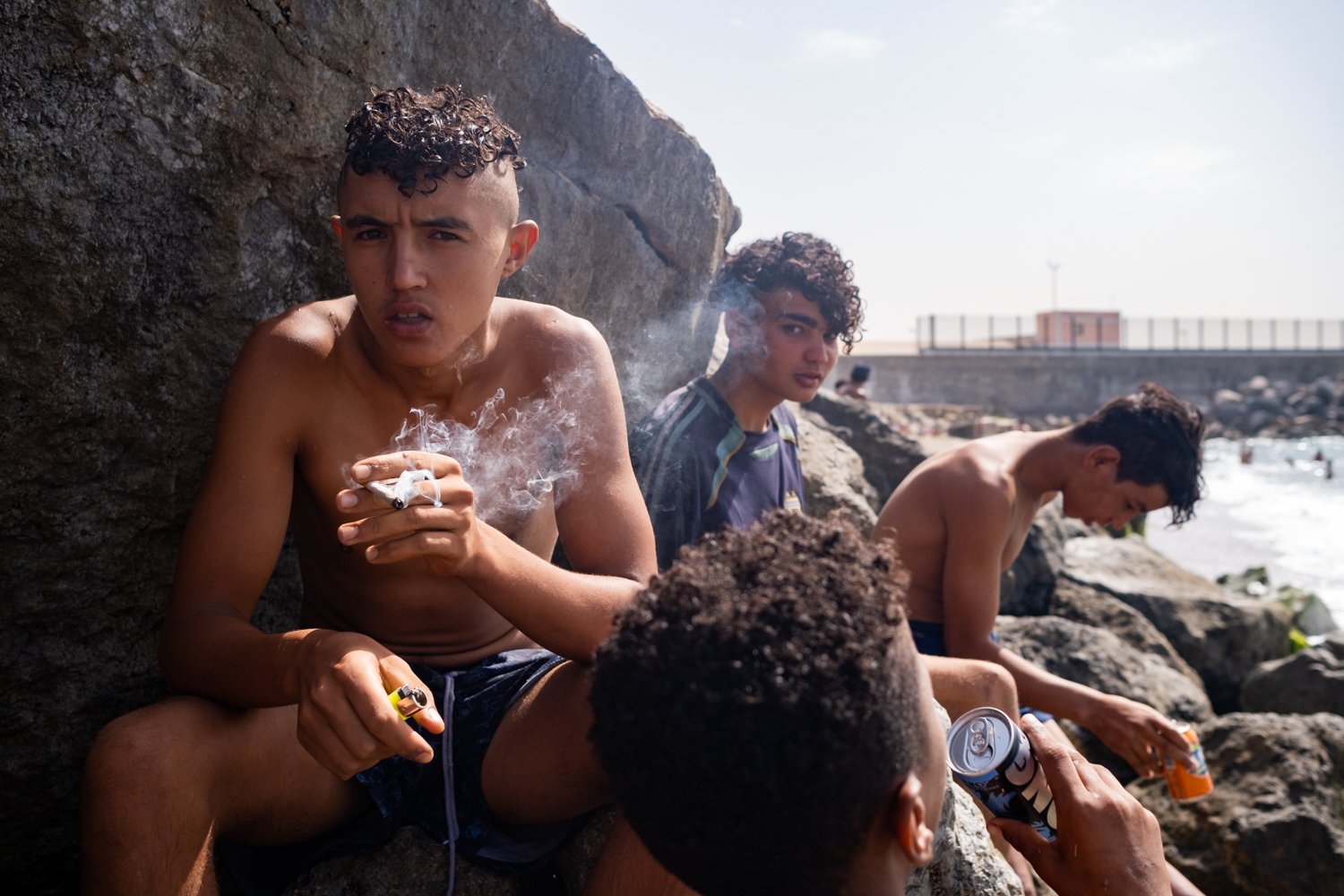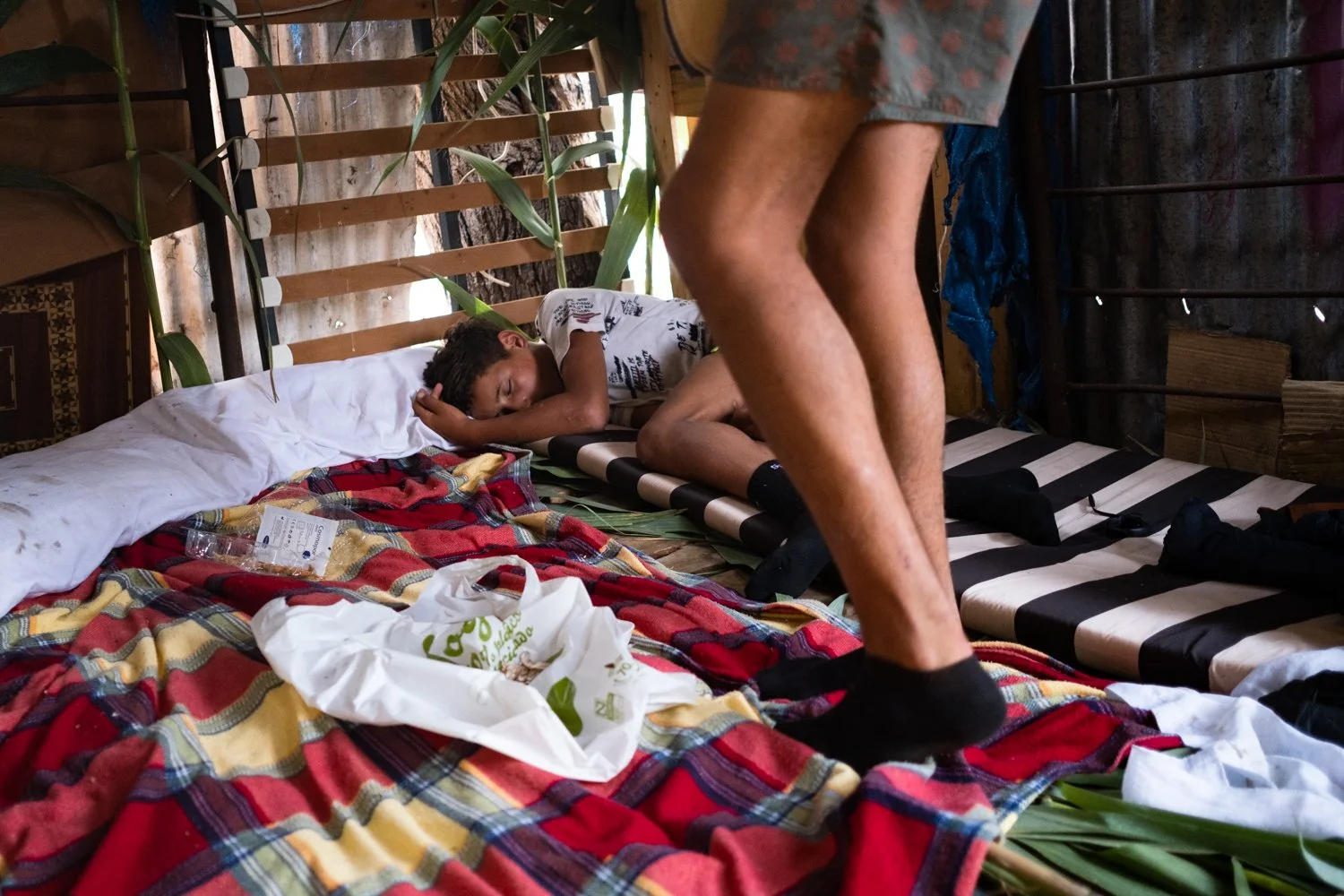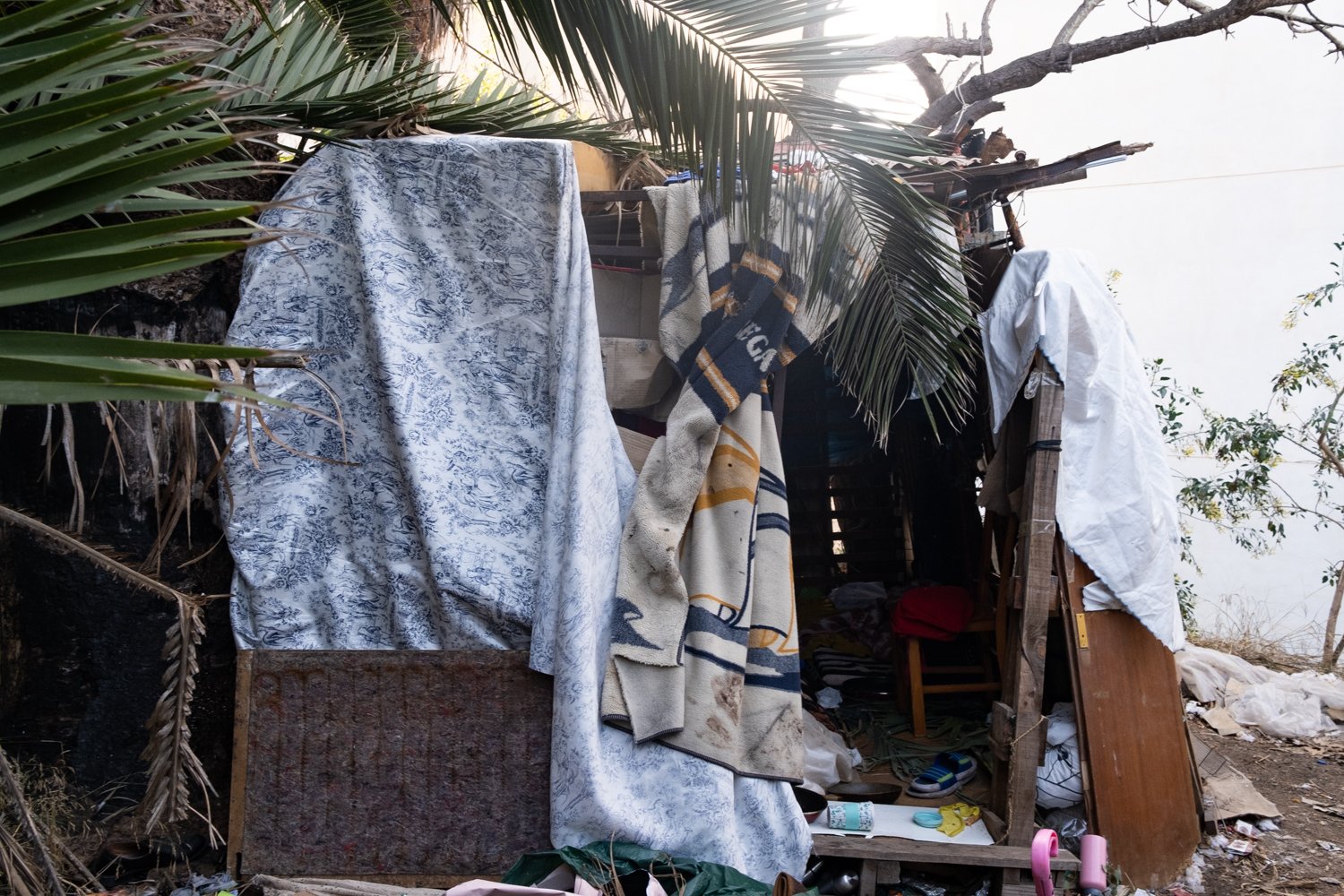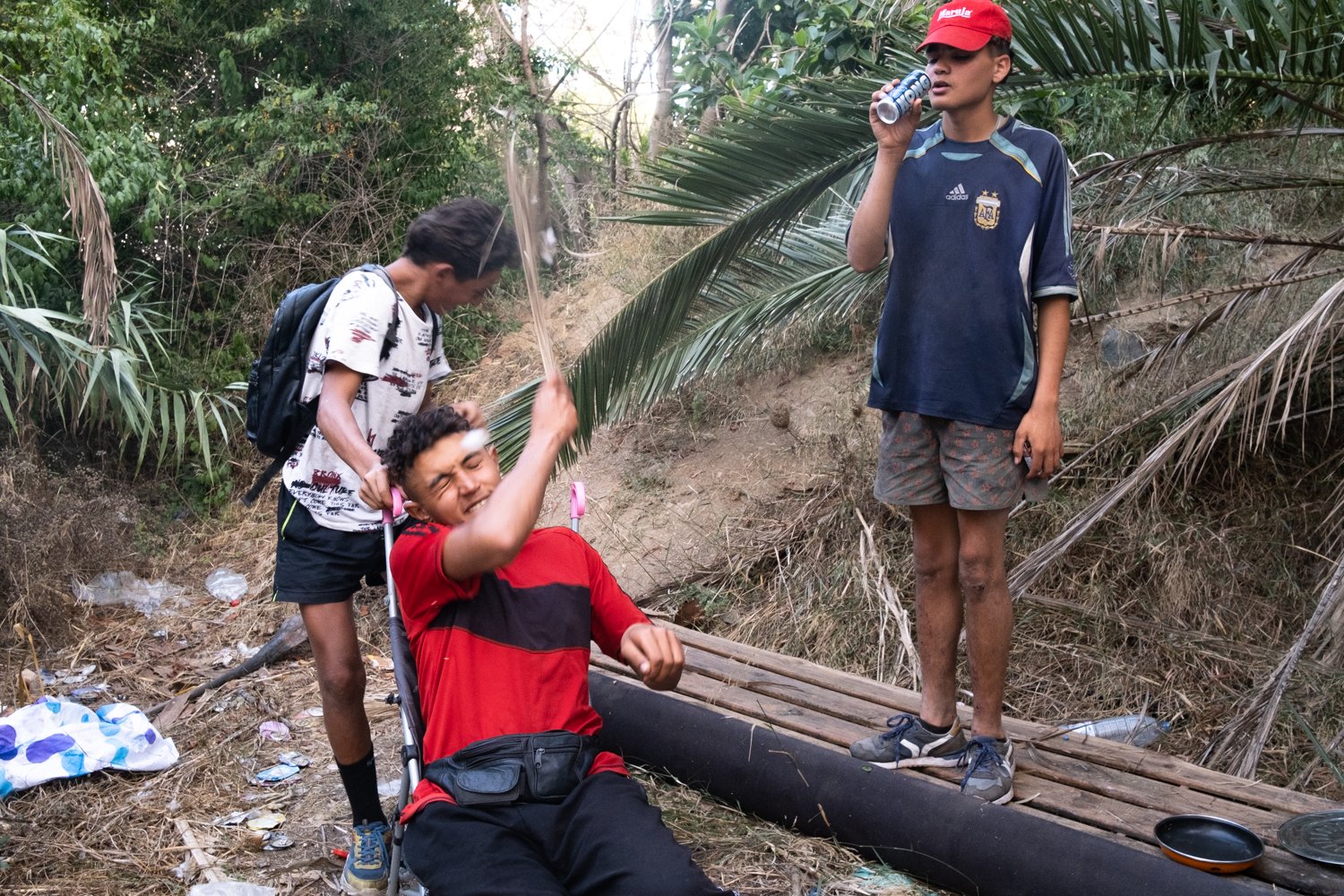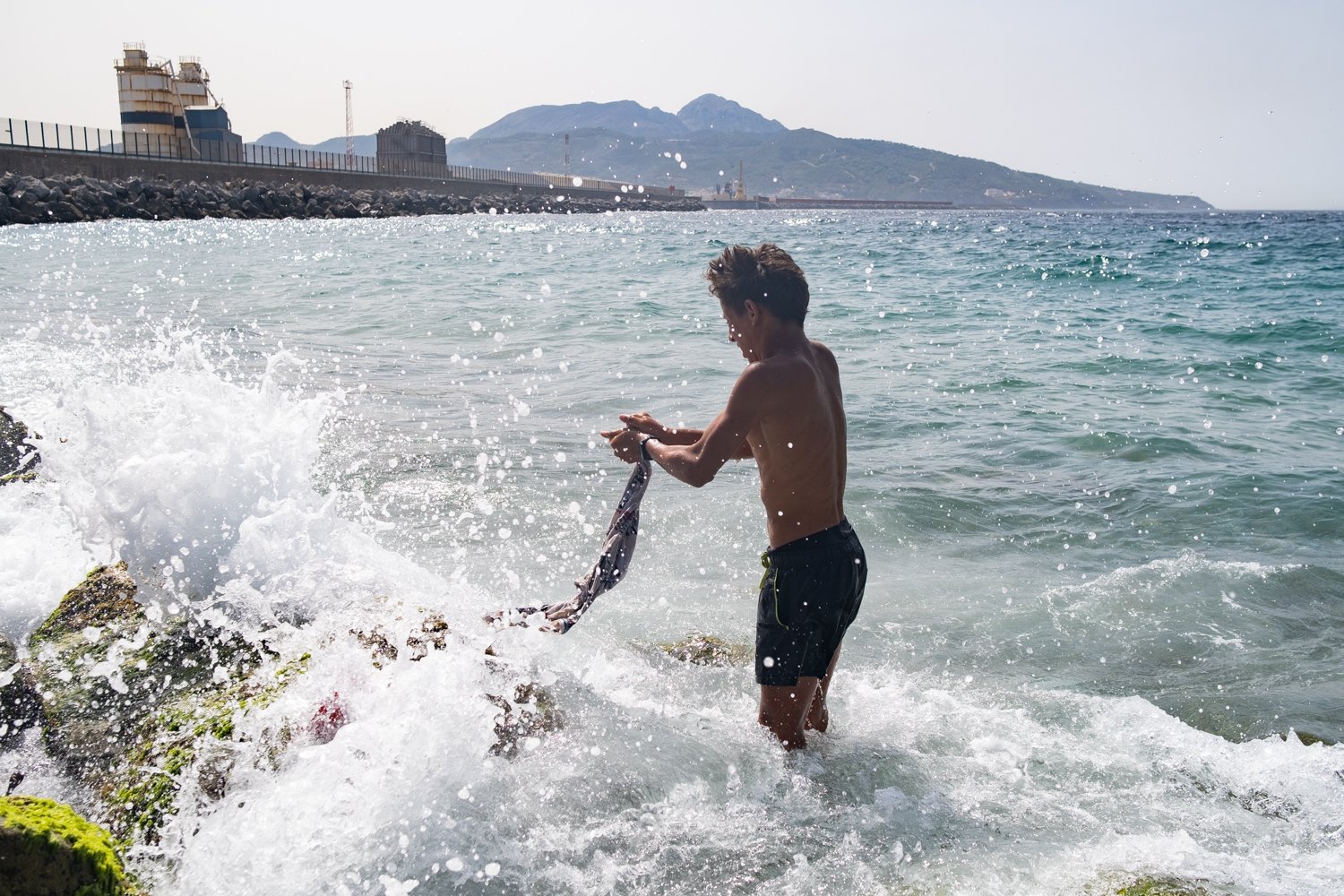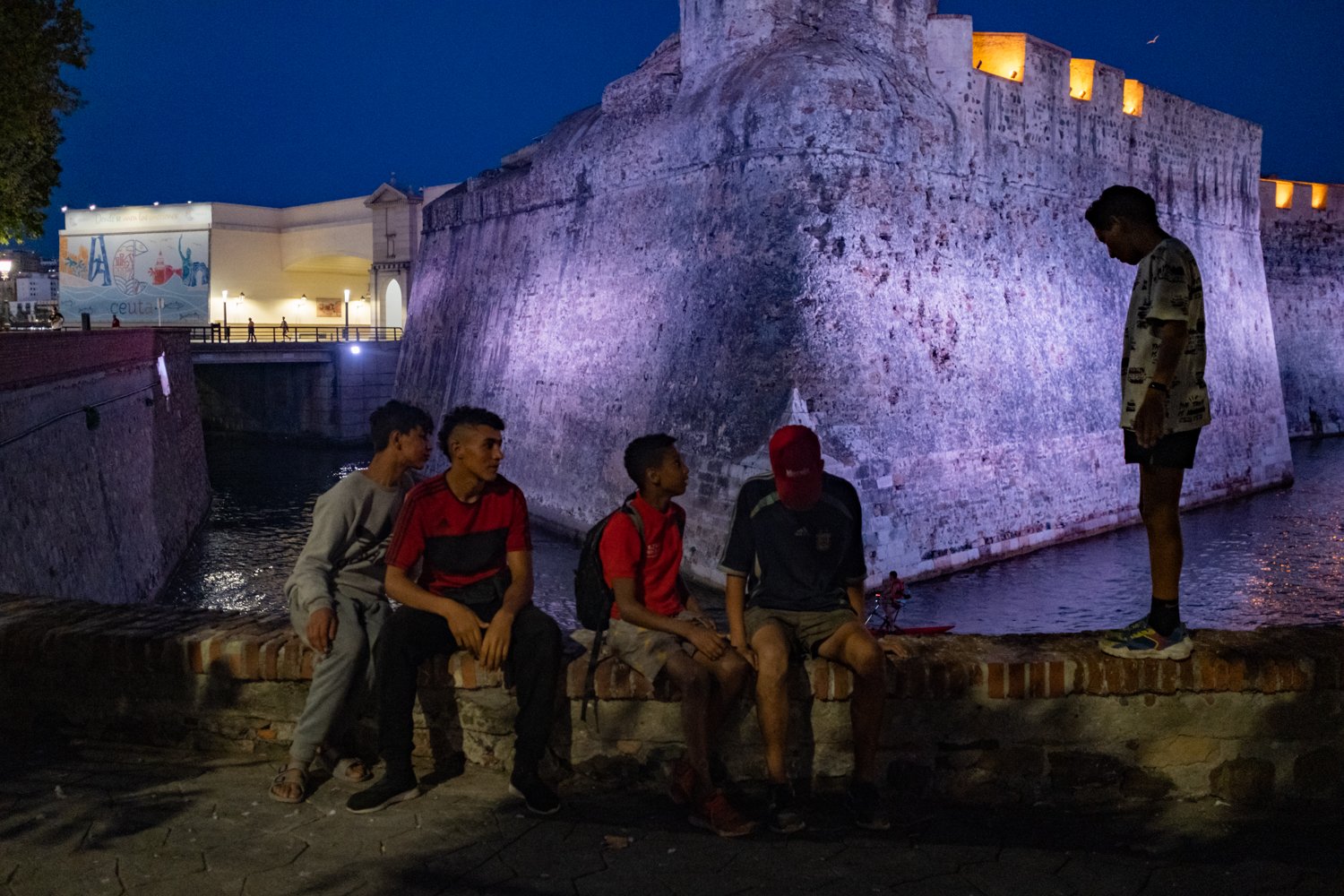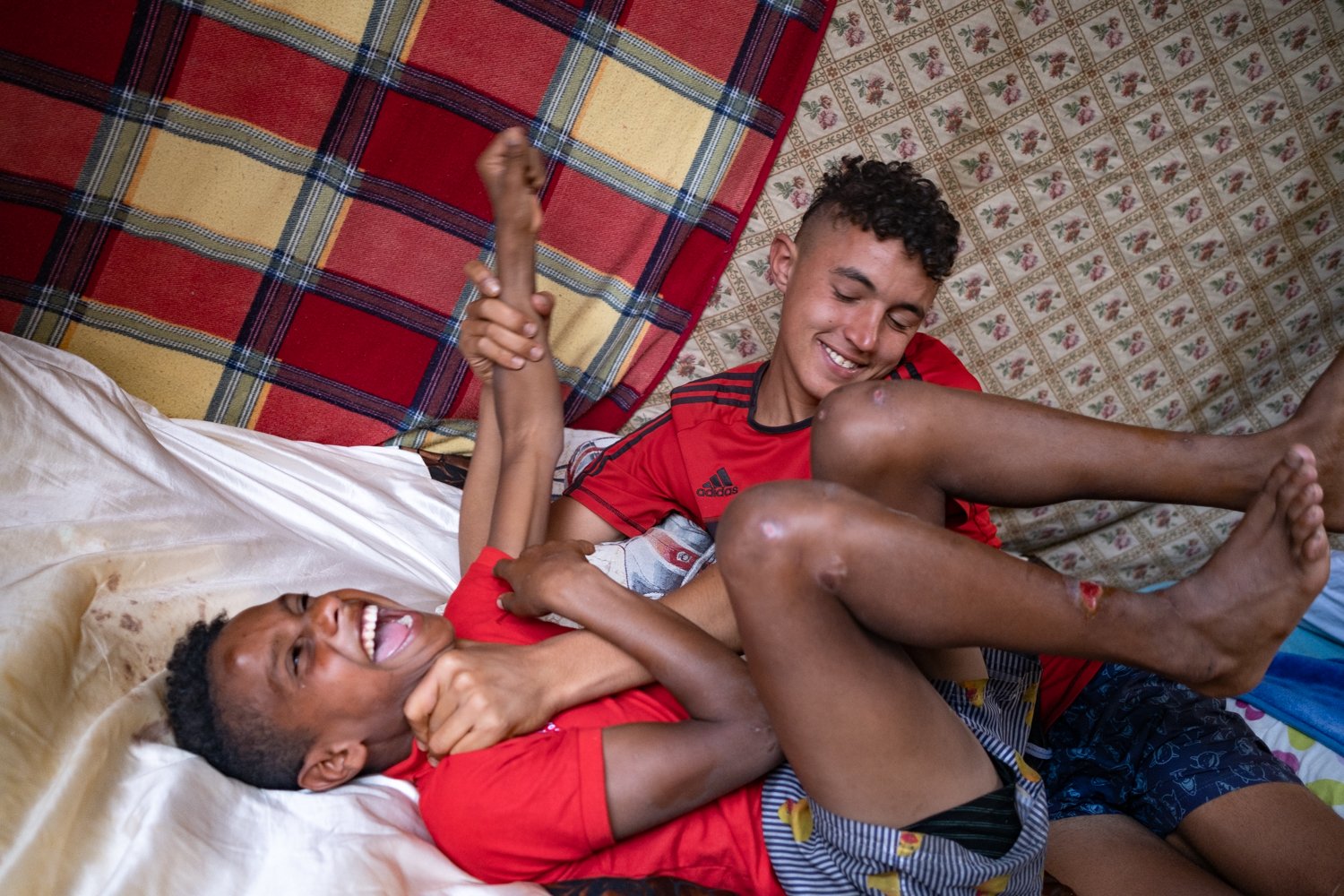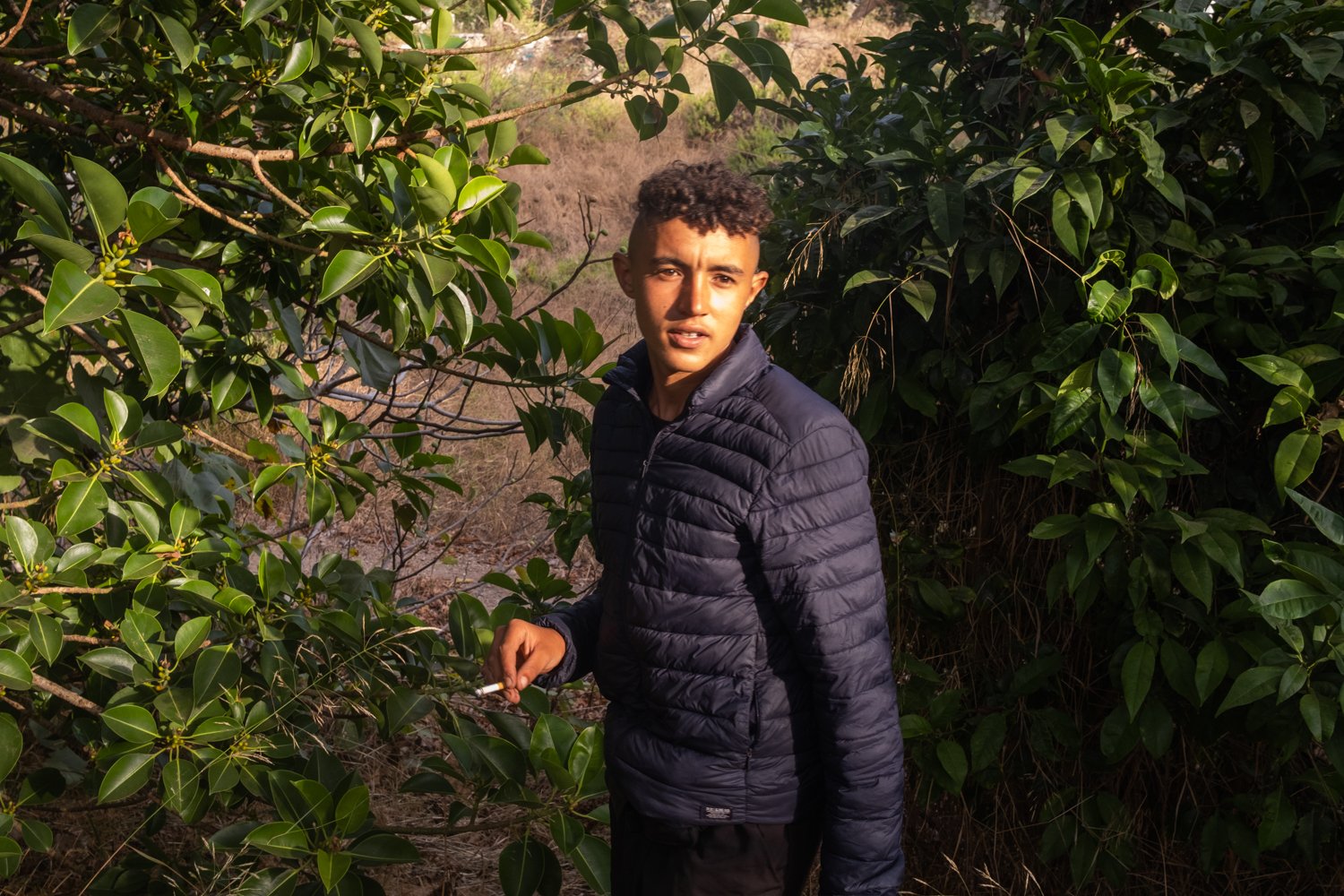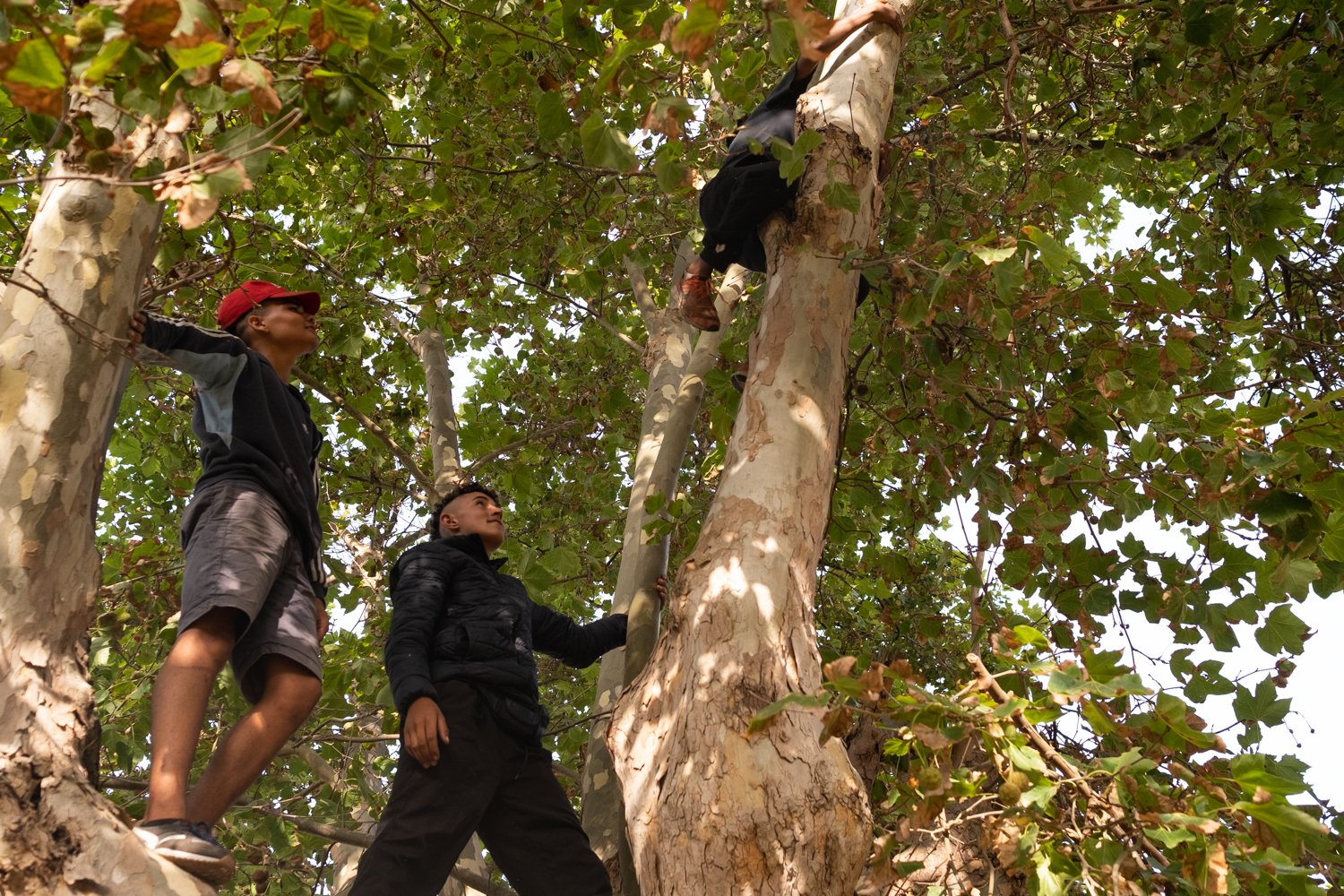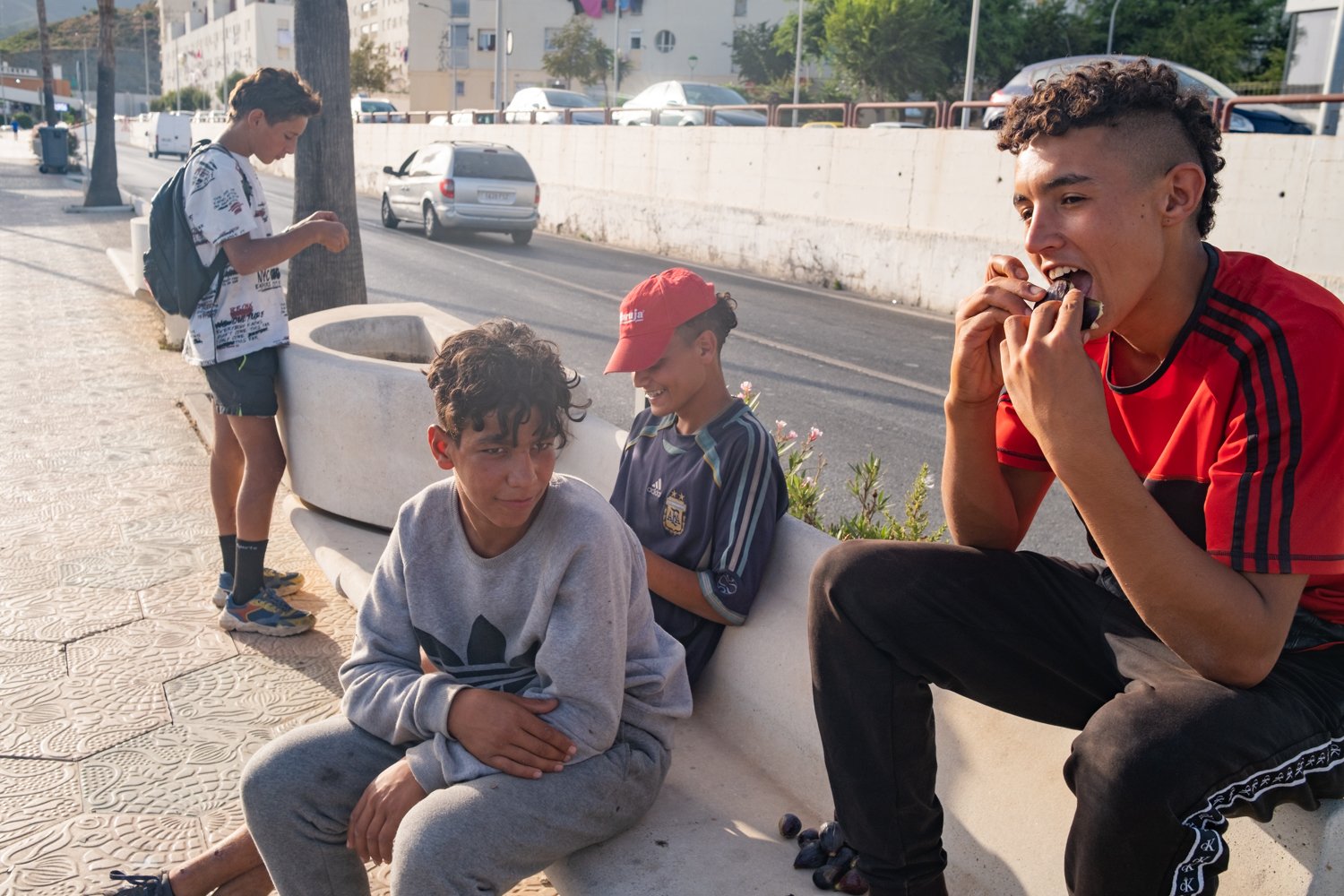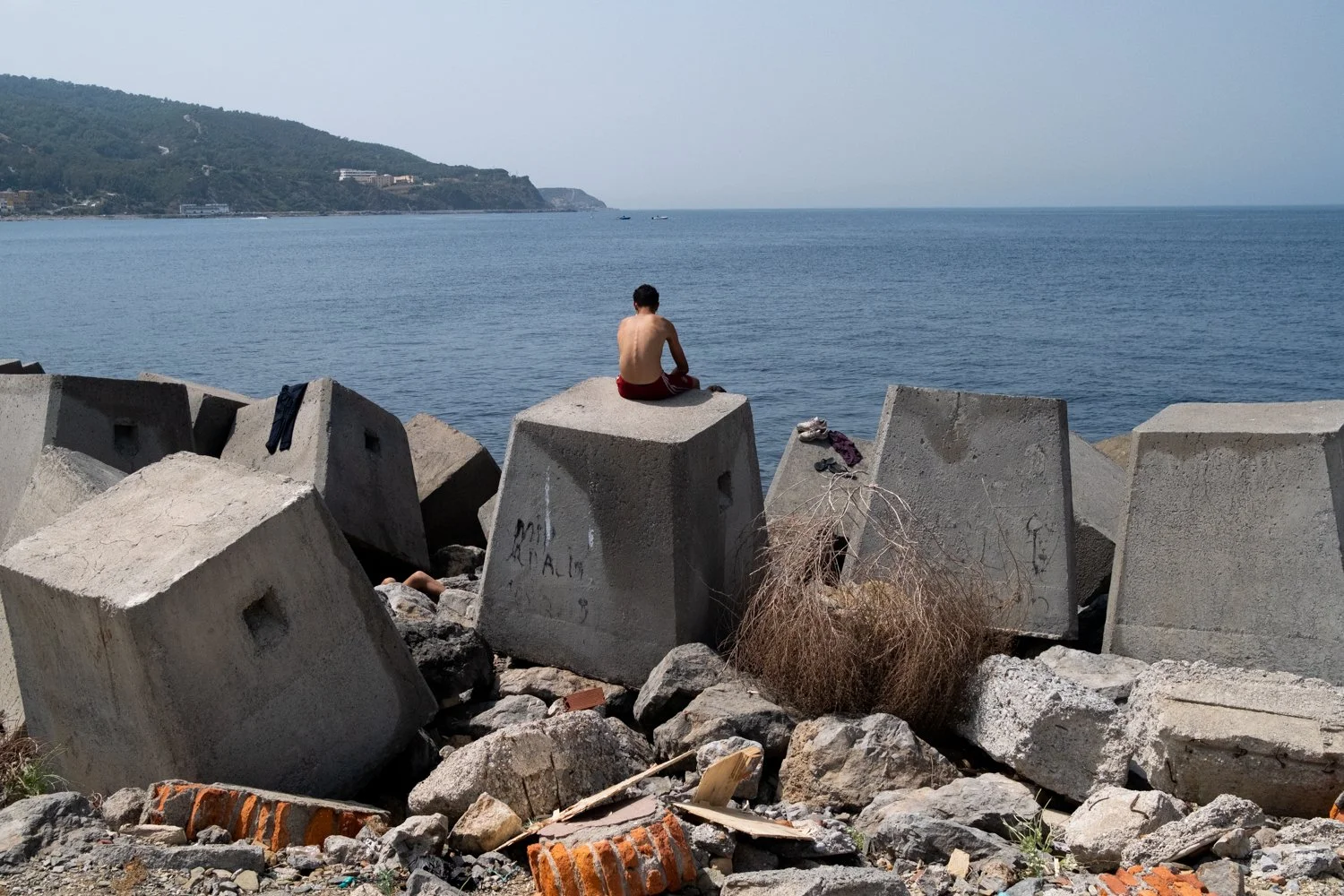
Harraga
Omar, Zackarya, Souleymane, Mohammed, and Younes are between 15 and 17 years old. They arrived illegally in Ceuta in May 2021, alongside nearly 8,000 other Moroccan and sub-Saharan migrants.
While many families in northern Morocco rely on cross-border trade with Ceuta for their livelihoods, the closure of the Tarajal border crossing, the only entry point, has plunged hundreds of Moroccan families into poverty. This has driven many young people to reach Ceuta and attempt the journey to Europe, hoping for a better life.
In 2021, UNICEF estimated that 300 to 500 minors were living on the streets of this 20-square-kilometer Spanish enclave. Left to fend for themselves, these young harraga (a dialect term meaning “border burners”), as they proudly call themselves, spend their days watching the ferries, hoping that one day they might cross the 14 kilometers separating them from their greatest dream: Europe.
Ceuta, Spain - August 202
In Ceuta, a 7.8-kilometer wall separates Africa from Europe. Here, the northern border, facing the village of Belyounech, in Morocco. The group of young people arrived in Ceuta during the events of May 17 and 18, 2021, when more than 8,000 migrants entered illegally, either by swimming or climbing the wall, into the Spanish enclave of Ceuta.
The youths spend their days on the concrete blocks surrounding the port. Monsif (on the left), from M'diq, injured himself trying to get into Ceuta's port. He received 7 stitches.
Elyès, 15 years old, comes from the city of Fnideq, at the border with Ceuta. Every day, he climbs the wall surrounding the port of Ceuta, hoping to get on a ferry to reach mainland Spain.
Oussama, 15 years old (top), and a friend, also a minor, climb the wall of Ceuta’s port.
“When the Guardia Civil finds us hidden in a truck, they beat us with several officers, sometimes even on the back and face,” says Oussama. The Guardia Civil arrived a few minutes after their attempt to cross. They won’t be going to Spain today.
“I’m tired of all this,” says Oussama, 15 years old (center). He is from M'diq, a city in northern Morocco, just a few kilometers from the enclave.
In the evening, the youths beg outside a Lidl supermarket. A few months after the May mobilization, associations have almost completely stopped food distributions, except for one mosque that provides one meal a day.
“I prefer living on the streets, even if it’s hard, rather than going back home to Morocco,” says one of the youths.
“Sometimes we get attacked by older guys here, they have big knives and take our stuff,” says Zackarya, 15, and Omar, 17.
In the evening, the group of young people begs in front of supermarkets in the city center. Several people give them food, as do some supermarket employees.
As the Guardia Civil arrives in front of the supermarket, the youths run away.
Spain has expelled several groups of youths back to Morocco, without giving them access to a lawyer. These expulsions were ruled illegal by the courts.
The group of young jump into the sea next to the port of Ceuta, from where ferries depart for Europe.
Omar, 17, Mohammed, Mohamed, and Zachary, 15, smoke after a swim. Zacharya and Elyès, 15, swim near the port of Ceuta.
Souleymane, 15, spends part of the night trying to enter the port and therefore sleeps during the day.
The shelter made of wood and reeds where the group sleeps, in the hills above Ceuta.
Souleymane, Omar, and Mohamed play in front of the small vacant lot where they live.
Souleymane, 15, washes his clothes in the sea.
Mohamed (on the left), nicknamed after his hometown "The Tangier Boy", Omar, Zackarya, Mohamed, and Souleymane in downtown Ceuta. The youths haven’t eaten a full meal all day, just a few biscuits and juices given by locals.
Zackarya, 15, and Omar, 17. Omar is the oldest of the group, he takes care of the youngest, nicknamed "Kenitra" after his hometown.
“In Morocco, I sold vegetables in the souk of Martil, I never went to school. This is my second time in Ceuta. I have no parents, so I might as well go to Spain.” Omar, 17, arrived in Ceuta by swimming last May.
Mohamed, Omar, and Zackarya climb a tree not far from the small shelter where they live, in the hills above Ceuta.
Omar, Mohamed, Souleymane, and Mohamed eat figs picked from a vacant lot.
Aziz, from M'diq, looks at the sea from the concrete blocks surrounding the port.
